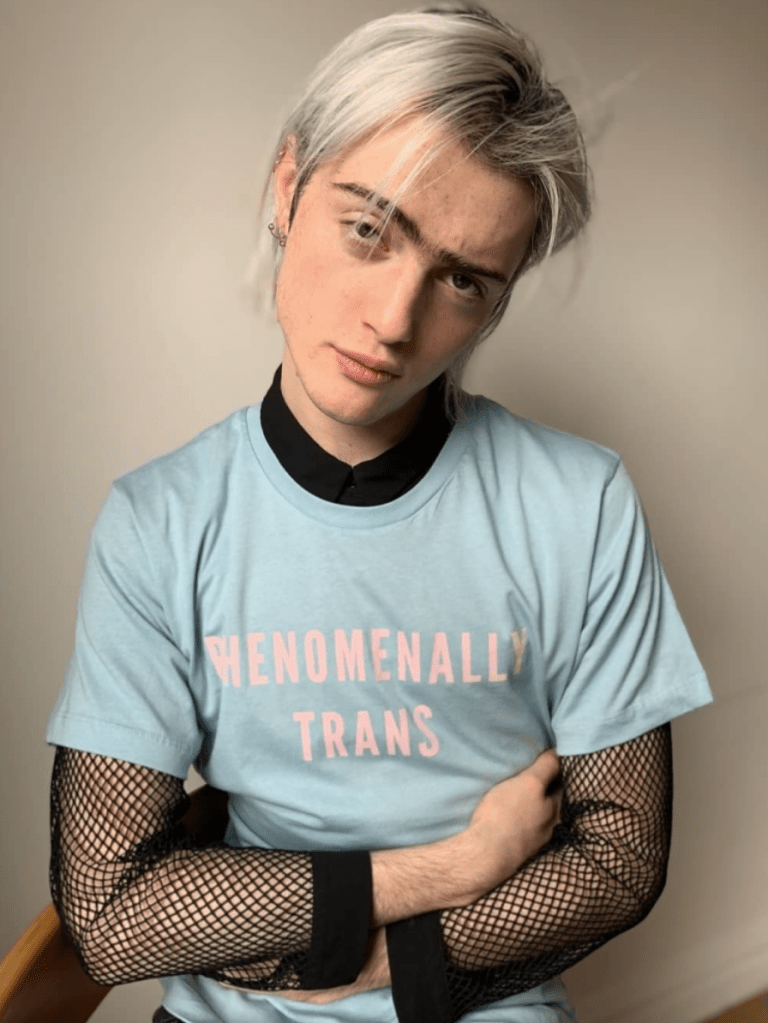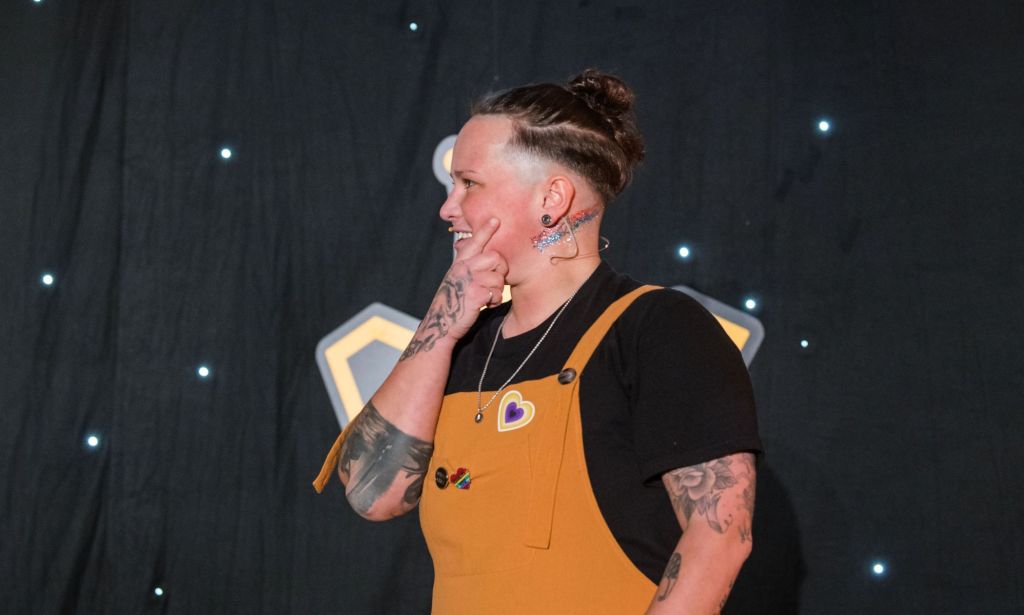Why it’s so vital to celebrate trans joy all year round, not just in Pride Month

George Gorg, Casil McArthur and Alex Lynam share what trans joy and Pride means to them. (George Gorg and Casil McArthur at SUPA Model Management/vickihead)
Trans and non-binary people share why trans joy is important, and not just during Pride.
With politicians seeking to rollback crucial rights, the media scapegoating the community and others attempting to erase trans folk from society, celebrating trans joy is especially important.
So often, being trans can be seen as a life of hardship. But the reality is that being part of the trans community is beautiful. So many trans, non-binary, genderqueer, agender and genderfluid people are not just surviving, but thriving.
Trans joy is the “freedom to express yourself, to make mistakes, to learn, to connect with people, to grow together,” says George Gorg, a fashion content creator and model.
“It is the confidence in knowing that you’re safe and accepted, you feel euphoric because your creativity and voice are listened to and respected, alongside everyone else’s,” they add.
“It is the joy of being truly who you are and being accepted for it.”
It’s important to talk about trans joy all year round, George says. Although trans voices are amplified during Pride month, there’s a crucial need to “cut through all the fear and noise” outside June.
“People who feel like they don’t belong, who feel uncomfortable with the nature of who they are and who feel fear expressing themselves, they do not have to be someone else in order to belong. We all want to belong,” they add.
“If you are not accepted in your environment, it is not your fault, it is your environment’s responsibility to learn, adapt and lovingly include everyone who is in it.
“It is never selfish to try to find another environment that will give you a healthier space to grow.”
For model and activist Casil McArthur, trans joy is “an energy that is beautifully radiant and encouraging for anyone’s own self-love journey, regardless of identity”, especially “if you allow yourself to hold space and celebrate that kind of joy”.
We live in “some of the most dangerous and unprecedented times” for the trans community, Casil goes on, with trans peoples’ rights to “just exist, be alive, celebrated, have access to medical care and [be] simply left alone” under attack from “sadistic prying groups of people”.
However, “trans people and our joy [are] resilient,” he adds.

“As pressure continues from conservative groups to erase trans people from public life, put targets on our backs to be subjected to brutal violence and dehumanisation, [it’s important] that our allies do not fold or give into the pressure of helping erase trans people,” Casil adds.
“It is imperative to support and uplift trans people in every aspect with your whole chest, your whole heart. Right now. More than ever. Or we will all lose our rights and respect as human beings.”
It’s platforming visibility and speaking about trans experiences
Alex Lynam, the founder and director of LGBTQ+ help group Beyond the Binary, finds joy and pride in the ability of trans and gender non-conforming people to be visible, to speak about their experiences and champion their stories.
“It allows people to hear and resonate with our experiences, and to gain more awareness and to change the perspective of how much hardship [trans people face] and how much we need to be held so that we can go through our life in a fulfilled way,” they say.

As a public speaker, Alex goes into “predominantly cis spaces” to talk about their experiences, and finds people will say that they never realised the barriers trans and non-binary people face.
Alex finds joy in the growing movement of trans allyship that they witness as the result of such conversations, and how allies can use their power to fight the surge of anti-trans hate worldwide.
“It affirms me, empowers me and it shows that people can open their minds,” they say.
“People can have these maybe-uncomfortable conversations and can be held in a safe space to open their minds to these conversations so they can go into further spaces and champion solidarity, in love and nourish [the community], rather than it be a hindrance, a burden or a fearful conversation.”
How did this story make you feel?

